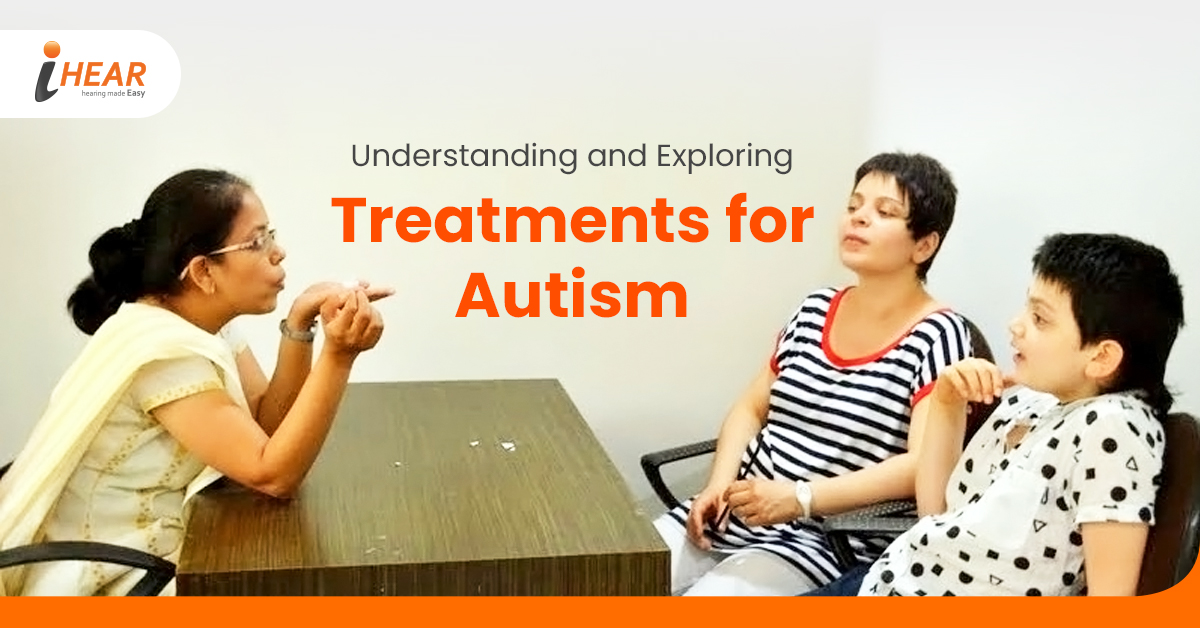Understanding and Exploring Treatments for Autism
Autism Spectrum Disorder (ASD) is a complex neurodevelopmental condition characterized by challenges in communication, social interaction, and repetitive behaviors. As the prevalence of ASD continues to rise, there is a growing focus on understanding and implementing effective treatments. It’s important to recognize that each individual on the autism spectrum is unique, and treatments must be tailored to address their specific needs. In this comprehensive exploration, we delve into various evidence-based treatments for autism, ranging from behavioral interventions to therapeutic support and educational strategies.
Early Intervention: A Crucial Starting Point:
Early identification and intervention form the cornerstone of effective treatment for ASD. Early intervention programs, often involving a multidisciplinary team, aim to address developmental delays and challenges in communication and social interaction during the critical early years of a child’s life. These programs focus on enhancing cognitive, language, and motor skills, setting the stage for improved long-term outcomes.
Behavioral Interventions:
Applied Behavior Analysis (ABA) is a widely recognized and extensively researched behavioral intervention for individuals with ASD. ABA involves breaking down complex behaviors into smaller, manageable tasks and using positive reinforcement to encourage desired behaviors. This approach is particularly effective in improving communication skills, social interactions, and reducing repetitive behaviors.
Speech and Language Therapy: Unlocking Communication:
Communication difficulties are a hallmark of ASD. Speech and language therapy, conducted by speech-language pathologists, addresses challenges in verbal and nonverbal communication. These interventions focus on improving expressive and receptive language skills, enhancing communication clarity, and providing individuals with alternative communication methods if needed.
Occupational Therapy: Nurturing Daily Living Skills:
Occupational therapy plays a crucial role in supporting individuals with ASD in developing essential life skills. Occupational therapists work on improving motor coordination, sensory integration, and daily living skills, enabling individuals to navigate their environment more effectively and engage in everyday activities with greater independence.
Social Skills Training: Fostering Meaningful Connections:
Individuals with ASD often struggle with social interactions and understanding social cues. Social skills training programs aim to teach and reinforce appropriate social behaviors, enhance perspective-taking abilities, and promote the development of meaningful relationships. These interventions often utilize structured activities to provide individuals with practical tools for navigating social situations.
Educational Support: Customized Learning Environments:
Specialized education programs tailored to the unique learning styles and needs of individuals with ASD are fundamental. Individualized Education Plans (IEPs) ensure that educational strategies align with the strengths and challenges of each student. Collaboration between educators, therapists, and parents is critical in creating an inclusive and supportive learning environment.
Medication Management: Addressing Co-occurring Conditions:
While not a primary treatment for ASD itself, medications may be prescribed to manage co-occurring conditions such as anxiety, depression, or attention deficits. Medication decisions are made on an individual basis, taking into consideration the specific needs and challenges of each person, and are closely monitored by healthcare professionals.
Parental Training and Support: Empowering Families:
Parental involvement is integral to the success of autism interventions. Parent training programs provide families with the knowledge and tools necessary to support their child’s development, manage behaviors effectively, and create a nurturing home environment. Empowering parents equips them with the skills to continue fostering their child’s progress outside of formal therapy settings.
Sensory Integration Therapy: Managing Sensory Sensitivities:
Many individuals with ASD experience sensory sensitivities or challenges. Sensory integration therapy focuses on helping individuals process and respond to sensory input in a more organized way. This can contribute to a reduction in sensory-related distress and improve an individual’s ability to engage in daily activities. Common autism treatments include behavior therapy, speech-language therapy in ihear.in. Visit Now for autism treatments in kolkata.
Transition Planning: Preparing for Adulthood:
As individuals with ASD transition into adolescence and adulthood, comprehensive transition planning becomes paramount. This involves preparing for changes in education, employment, and independent living. Transition services help individuals develop the skills necessary for a successful transition to adulthood.
Navigating the spectrum of treatments for Autism Spectrum Disorder requires a comprehensive and individualized approach. From early intervention programs that set the stage for developmental progress to behavioral interventions, speech therapy, and educational support, each treatment modality plays a unique role in addressing the multifaceted challenges posed by ASD. The collaboration of a multidisciplinary team, including psychologists, therapists, educators, and healthcare professionals, ensures that interventions are tailored to the unique strengths and needs of each individual. As our understanding of autism continues to evolve, so do the treatment options. The ongoing exploration of new therapies and interventions holds promise for further enhancing the quality of life for individuals with ASD. Through a combination of evidence-based treatments, unwavering support from families, and a commitment to fostering inclusivity, individuals with autism can thrive and make meaningful contributions to society. Ultimately, the journey towards effective autism treatment is a dynamic and ongoing exploration, reflecting a collective commitment to understanding and supporting individuals on the autism spectrum.

